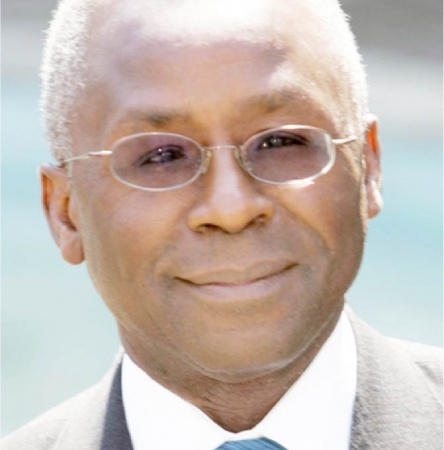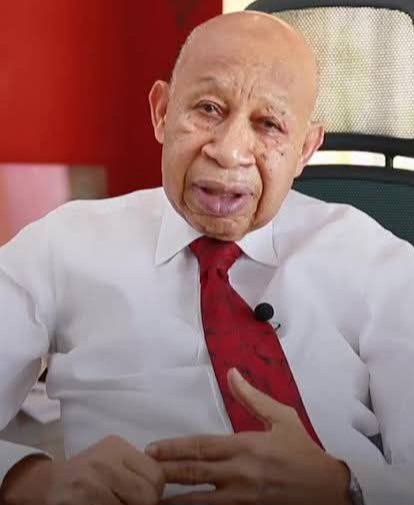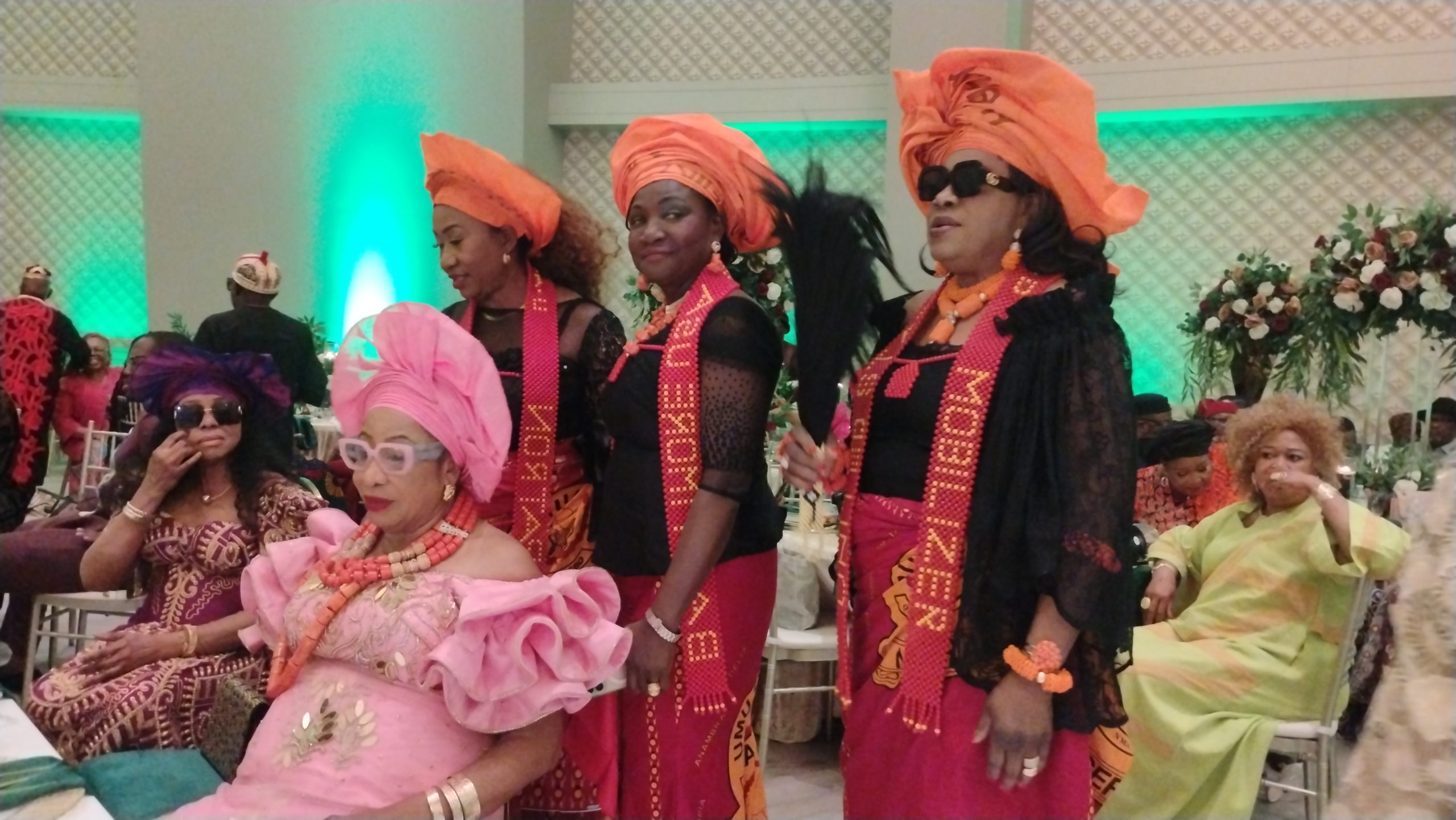How to conquer Covid-19: WHO virologist, Prof. Tomori

As the number of those that test positive for COVID-19 keeps ballooning by the hour as shown by statistics being churned out on an hourly basis by the Nigeria Centre for Disease Control (NCDC), and as Federal and state health authorities try to plunge every instrument and strategies they have into the concerted battle to reduce that number, Prof. Oyewale Tomori, a virologist for the World Health Organisation (WHO) and other health experts that include medical doctors, psychologists and psychiatrists, have proffered a range of solutions on how to conquer the scourge. The solutions they provided, in chats with Saturday Sun, range from the preventive and curative to the post-curative.
Preventive
NCDC, in its posting, on its website, of “frequently asked questions (FAQs)” on the virus, advised people who recently traveled or returned from any country with ongoing transmission of COVID-19 and who are feeling unwell to immediately contact the centre on some published toll-free phone numbers. “Returning travellers to Nigeria: stay home & avoid contact with people includ- ing family for 14 days. For NCDC self-isolation guide visit Covid-19. ncdc.gov.ng #TakeResponsibility,” it added.
Not everybody should undergo Coronavirus test, said Dr. Sani Aliyu, the National Coordinator of the Pres- idential Task Force for the Control of Coronavirus set up by President Muhammadu Buhari. “What we really need to re-emphasise to the public is that they only need to do the test for coronavirus when they have the symptoms and you are linked to a positive contact case or you have the relevant travel history.”
Tomori, past President of the Nigerian Academy of Science with vast experience in virology, disease prevention and who has served and continues to serve on numerous national and global advisory committees, including: Lassa Fever Steering Committee, National Laboratory Technical Working Group, Expert Working Group on Polio Eradication and Routine Immunization, WHO SAGE, WHO Africa Regional Polio Certification Committee, WHO Group of Experts on Yellow Fever Disease, WHO Emergency Committees on International Health Regulations (Yellow Fever, Ebola, & Polio), GAVI Board, U.S. National Academy of Medicine Global Health Risk Framework Commission, and World Bank Interagency Working Group on Financing Preparedness and Response, is skeptical about such approach having a far-reaching impact on the fight against COVID-19 spread. While he commends the federal and state governments for following the global guidelines and directives for curbing the epidemic, he, however, stressed the need “to adapt these guidelines to our situation and environment. We may be miss- ing some if not many cases, by testing only those showing symptoms. By revising the testing guidelines, we will certainly detect more cases, and know the true status of the disease in Nigeria.”
Medical doctors interviewed by Saturday Sun, to some extent, agree. While Dr Theophilus Osuji, Chief Medical Officer, Alex Ekwueme Federal University Teaching Hospital, arguing that, “at the rate at which people are being tested it may be difficult to curtail the virus on time,” advocates community testing, something that Dr. Akin Dare, Medical Director, Light Hospital and Maternity Home Ltd, Alimosho, La- gos, and Prof. Tomori do not see as feasible. Dr. Faith Nwachi, a health consultant and Chief Operating Of- ficer of Lagos-based healthcare organisation believe that “we are on the right track with measures being taken by both the federal and state governments, particularly Lagos, although they appeared to have come a bit late, especially with our failure to shut down the airports on time.”
“It is not possible for any government to do mass testing or community diagnosing; the test kits are scarce and also expensive,” Dare observed.
“What we need may not be community testing but testing anyone who may have come in contact with a positive case, irrespective of whether he or she is symptomatic or asymptomatic,” Tomori said. “We certainly need to have more testing centres and procure sufficient numbers of testing kits”, Dr Osuji concurs. “We are not doing enough extensive testing as to know how many people are affected. We don’t have testing kits. It is only through testing that we can get people. The best way to curtail it is to reduce people that carry the virus from mingling with people who are not carrying it.”
It is in light of this fact, that both Dr. Dare and Nwachi welcome the current lockdowns by the federal and state governments although Dr. Olusegun Temilola, a sociologist, fears that continuous stay at home may lead to increase in crime and pose extra challenge to law enforce- ment agents on whose shoulders the governments rely to enforce the order.
“In countries where the number has been increasing, they have been locking down,” Dare said. “Lockdown will help. Wuhan, China, was locked down completely. Nobody was coming in and nobody was go- ing out but it takes courage to do so because of other implications. Before lockdown, WHO had provided some guidelines: wash your hand with soap, use sanitizer, apply social distancing and sneeze or cough into a handkerchief, plus wear face masks,” Tomori added. “If all these are prac- tised religiously, person-to-person transmission can be greatly reduced.”
Men make up 70 per cent of infected persons, the Minister of Health, Dr. Osagie Ehanire, said on Wednesday during the Presidential Task Force briefing. “About 70 per cent of those who have tested positive are males,” he said, in an answer to a question. “However, we must note that both men and women of all ages can be affected.” But which of the two sexes feel more traumati- cally affected as a result of the attack? This was the question that Saturday Sun took up with Mrs Sarah Chuku- kere, a psychologist with specialty in youth counseling and crisis management and Programme Director of Mase Foundation.
Her answer: “I think it is equal.
Why I said so is that it all depends on the kind of defence mechanism that one has. It does not depend on sex. Some women are more resilient than men and some men are. So, it all depends on your emotional resilience; what psychology would call defence mechanism: are they working for you? Do you have good adaptive one, not maladaptive one, I mean, good one that will help you get through it emotionally? That is what will determine who will adapt better than the other person. It has nothing to do with the sex of the victim.”
Curative
Miss Oluwaseun Ayodeji Osowobi, Executive Director of an anti-rape Non-Governmental Organisation (NGO), and 2019 Time magazine’s winner of “100 rising stars”, who was discharged recently from a Lagos-based isolation centre, after recovering from COVID-19 attack wrote, on her twitter handle, about how she “murdered” the virus, while reliving her battle against it.
“Life finds ways of throwing Lemon at me,” she remarked. “I’ve struggled with coming forward, but I want to inspire hope. I returned to Nigeria from the UK post-Commonwealth I totally enjoyed and fell ill. As a responsible person, I self-isolated. Before returning, I had planned sev- eral interviews. I was scheduled to start a fantastic counsultancy job and was also expecting to sign a contract worth millions. I lost them all. I had to self-isolate and also inform people
I came in close contact with to get tested. My friend and I kept calling @NCDC gov to get tested. What if we didn’t persist?
“No info on my test result. At 12am, an ambulance was at my house. I woke from sleep and was crying. I got to the isolation centre, but no one was there to receive me. I waited in the ambulance for two hours. The nurses eventually came out and treated me like a plague. I sat in the ambulance feeling rejected. No questions about how I felt. So many questions about my travel history. Some information I had provided to NCDC and Lagos State government during profiling. Lack of data sharing! After two hours, I was taken to my space. I felt lonely, bored or disconnected from the outside world. Few days after, another patient came in. We bonded. Days later, patients trooped in. Are people observing self-isolation and social distancing? I was scared for Nigeria.
“The next day was tough. No appetite. The nausea, vomit and stool- ing was unbearable. I’m a blood type A and COVID-19 dealt with me. I thought I was going to die and contemplated a succession plan for @StandtoEndRape. I was on drug daily. Sometimes, I’d take 8 tablets in the morning, 13 tablets in the afternoon, 10 tablets at night. My system threw everything out! Water, food, soap and all disgusted me. But, I’d look at the wall and force myself to stay hydrated – drank ORS (Oral Re- hydration Solutins). I fought to live. I fought.
“Days after, the doctors shared a good news that I tested negative. I shared this news with my family and friends. My blood sample was taken and I also tried to donate my plasmapheresis to help others…Today, I am proud to inform you that I murdered COVID-19 and I have tested negative twice! I have been discharged. I bless God for His mercies. Coronavirus is NOT a death sentence. People can survive and I HAVE!”
Talking about the role health givers, family and friends played towards her recovery, Osowobi noted: “The nurses at IDH Yaba were fabulous. They deserve accolades for their hard work…This experience reminded me of the value of friendship. Some people I refer to as friends speculated about this, but never reached out to check. Thank you still. Back to the grind! Huge thanks to my family who were my backbone. Thanks to everyone who called, sent messages and tried to contact me. I am grateful and well. This experience reminded me of the value of friendship…Thanks to my chat buddy.
Some stigamatised me based on an article with subtitle messages like “why did she come back to Nigeria?” Nigeria is my home…Here to remind you that no matter how you itch to do it or how convenient it may seem, never use your friend’s situation or information to score points. It’s a crass behaviour.”
Chukukere warns that people who isolate themselves at home are likely to experience similar panic and anger like Osowobi did. And, in the process, are likely to forget to take their regular drugs, if they had any underlying disease before COVID-19 kicked in. In order to deal with that, she advised that they continue with their regular routine and exer- cises. “They may forget to take care of themselves,” she said. “In order not to forget the things you are supposed to do, write down reminders and stick on the wall, make a list of the things you should do every day.”
Post-curative
Though Osowobi survived, she confessed that, at a point, she worried that might be re-infected, especially, when, owing to lack of space, she continued to be kept in the same ward with people who were positive. “I was anxious to go home.” Tomori dismissed the fear of a survivor getting re-infected as possibly unfounded. “If you get the infection and you survive, the level of immunity may even be higher and longerlasting than can be generated with vaccines,” he said.
Dr. Adefemi Adeoye, consultant psychiatrist, Federal Neuropsychiatric Hospital, Yaba, Lagos, strongly recommends her indefatigable spirit, of coming forward to share her experience, to those who can emotionally afford it.
“The issue is individualized,” he said. “It is encouraged that people come out openly and say it but, of course, it is discretional; it shouldn’t be forced. Some people don’t want their health issues exposed in the public domain while some don’t mind. When celebrities come out to say that they are positive, it actually helps the society to realize that ok, anybody can be affected by this virus and it helps to de-stigmatise the problem. It actually helps a lot in terms of community. But with re- spect to individuals, I think it should be left to them.”
“For people who survive, who get through the disease, they need a lot of counseling because there will be post-traumatic syndromes,” Chuku- kere advised. “People will wake up with nightmares. It is going to happen. It happened in other pandem- ics like HIV. So, if even people get through in one piece, they should also try to seek counseling because the disease may change their behaviour. They may feel like they were abandoned by people during the disease and now become recluse and stick to themselves even when they are cured and everything gets back to normal. So, there is need for them to go for counseling after the disease.”
– Saturday Sun


